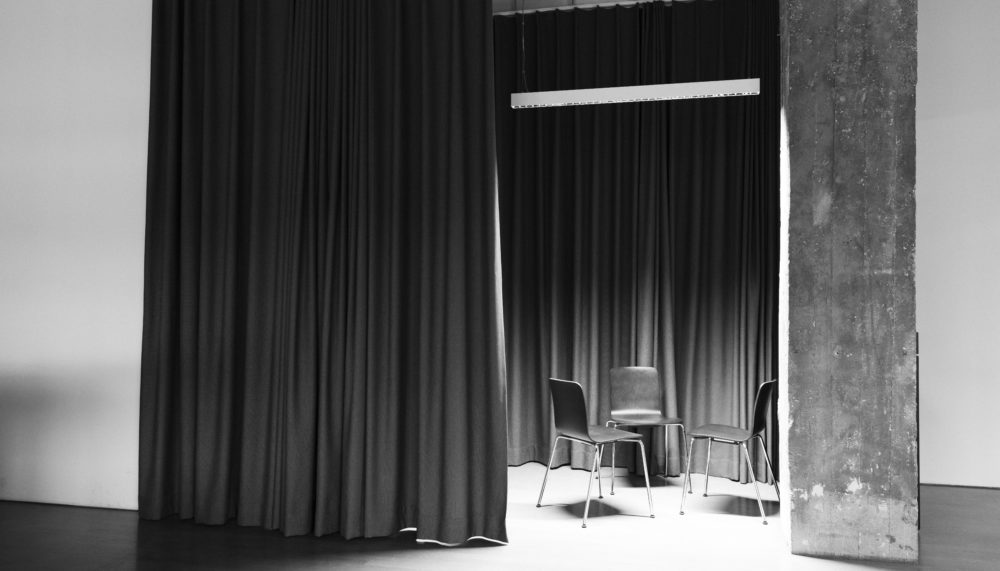PRESS RELEASE | 13 Oct 2021
Berghof Foundation marks 50 years of peacebuilding

Looking on from the 50th anniversary, four prominent challenges feature among Berghof’s top priorities in dealing with the complex root causes of conflicts.
Today marks the 50th anniversary of the Berghof Foundation. Headquartered in Berlin, this independent non-governmental organisation has worked to reduce and transform violent conflict in many regions across the world.
The Berghof Foundation was founded on 13 October 1971, at the height of the Cold War, by the scientist and philanthropist Georg Zundel. It sought to ease East-West tensions and to provide critical analysis of the arms race. Half a century later, Berghof’s current peacebuilding work extends to more than 20 countries worldwide.
Facing new threats to peace, new forms of violence, new weapons, new ways of analysing conflict and building peace, Berghof’s methods and expertise in conflict transformation have evolved dramatically since its creation, and are now more needed than ever.
As was the case during the Cold War, there is still a massive imbalance in the sums spent worldwide to sustain the military versus the paltry amounts allocated to sustain or promote peace. Until that changes, we will continue to see large swathes of the world’s population engulfed in the misery of war, and the instability that derives from conflict afflicting far more.
Andrew Gilmour, Executive Director of the Berghof Foundation
In a recent speech in Berlin, Andrew Gilmour, Executive Director of the Berghof Foundation and former UN Assistant Secretary-General for Human Rights said, “As was the case during the Cold War, there is still a massive imbalance in the sums spent worldwide to sustain the military versus the paltry amounts allocated to sustain or promote peace. Until that changes, we will continue to see large swathes of the world’s population engulfed in the misery of war, and the instability that derives from conflict afflicting far more.”
Looking on from the 50th anniversary, Gilmour stressed the importance of investing in areas unforeseen half a century ago. Four prominent challenges feature among Berghof’s top priorities in dealing with the complex root causes of conflicts.
First is the question of climate. Climate change exacerbates existing conflicts and may even create new ones – especially where resources such as water and arable land are becoming increasingly scarce. There is a pressing need for the peacebuilding community to properly factor climate and other environmental questions into both our conflict analysis and mediated solutions to conflict. Work in this regard is already underway in Somalia, and will shortly be expanded to Iraq and elsewhere.
Second is the issue of gender, building on the UN Women, Peace and Security agenda. Almost invariably, women continue to be overlooked and under-represented in peacebuilding and mediation efforts. Strengthening the capacities of women is integral to ensuring an inclusive and sustainable peace. At the same time, a gender perspective must integrate diverse perspectives and identities.
Third is the rise of mass disinformation and hate speech. The onset of digitalisation gave rise to platforms marked by a lack of regulation and potential for manipulation. Engaging in this digital space will be essential to de-escalating potential conflicts and promoting inclusive dialogues, as Berghof has been doing in Germany and Lebanon.
Fourth, we see the central importance of working on historical narratives of past violence and injustice, which often affect people’s ability to engage in peaceful methods of social change. To this end, the Berghof Foundation has agreed with the German Ministry for Economic Cooperation and Development to establish a Transitional Justice Hub.
Alongside these new areas of focus, Berghof will continue to build on its existing expertise: to continue analysing drivers of conflicts, bringing people together to deal with violent pasts, establishing peer exchange and knowledge sharing networks, supporting negotiations, mediation and national dialogue processes, and training the next generation of peacebuilders.
While violent conflicts continue and intensify in many regions across the globe, Berghof continues to support peace in close cooperation with local organisations, such as in Afghanistan, Ethiopia, Lebanon, Somalia and Yemen. Its unique approach to conflict transformation, combining peace support in practice, research and peace education, has established Berghof as an internationally recognised peacebuilding actor, confronting the heightened challenges of today’s world.
The Berghof Foundation is an independent, non-governmental and non-profit organisation supporting people in conflict in their efforts to achieve sustainable peace through conflict transformation and peacebuilding. The organisation is based in Berlin and maintains an office in Tübingen. Berghof receives funding from private and public donors, such as the German Federal Foreign Office.
Media contact
You can reach the press team at:
+49 (0) 177 7052758
email hidden; JavaScript is required


